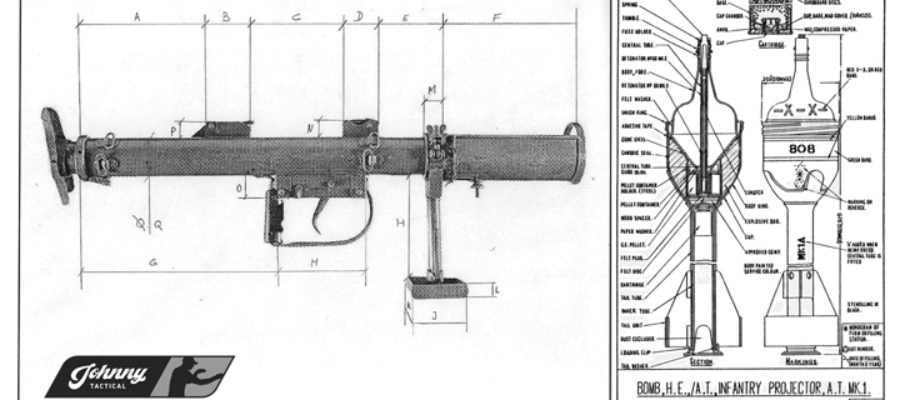D-Day: June 6, 1944, 0130 Hours
Before the renowned storming of the beaches of Normandy, a secret British mission securing a key strategic bridge behind Nazi lines had already taken place. A small force of British airborne troopers, carried silently by three Horsa gliders, had crash-landed under cover of night on a small spit of land between the Caen Canal and the Orne River in France. They had taken the German outpost guarding the bridge by surprise and secured it for the Allies.
But that was the easy part. They had captured the bridge, now they had to keep it.
The Plan
Known for their aggressive, rapid counterattacks, it would not be long before the Germans hit back, and the British knew it. They made a plan, dug in, and waited. Their small force had to hold the Germans off until relief arrived — an estimated three and a half hours. The plan was to choke the German advance at a T-junction in the road just east of the bridge. If the British could cause a bottleneck preventing tanks and heavy artillery from getting through, they just might have a chance.
The Piat
Between the three glider platoons they had only one shoulder-fired anti-tank gun, known as a Piat, that had survived the crash-landing. The Piat’s reputation for its short range of only 50 yards or less, coupled with its terrible accuracy, was little comfort to the Brits as the approaching German tanks shook the ground beneath them. That Piat gun was about all that stood between them and the formidable Nazi counterattack.
Sgt. M.C. “Wagger” Thornton took the Piat and hunkered down just 30 yards from the T-junction. He and his fellow soldiers could hear the rattle and feel the trembling ground of the tanks approaching in the dark long before they could see them.
The Hero
Almost 40 years later, in a 1983 interview with Stephen Ambrose for his book, Pegasus Bridge, Thornton said of that moment, “And sure enough, in about three minutes, this bloody great thing appears. I was more hearing it than seeing it, in the dark…and told myself, ‘You mustn’t miss.’ Anyhow, although I was shaking, I took an aim and bang, off it went.” ¹ The Piat bomb penetrated the lead tank and stopped it dead in its tracks, right in the middle of the T-junction, blocking further movement of the German attack.
During the hours that followed, the British engaged the Germans and held the bridge for the Allies which ultimately prevented the Nazi’s movement of artillery and supplies throughout France. And the rest, as they say, is history.
An argument has been made that Thornton had pulled off the single most important shot of D-Day. However, when Ambrose finished his interview with Thornton and the tape recorder had been turned off, Thornton turned to Ambrose and said, “Whatever you do in this book, don’t go making me into a bloody hero.” To which Ambrose replied, “I don’t make heroes. I only write about them.” ²
The Lost Virtue
Humility, it seems, has become a long forgotton virtue. In a day when everything from morning routines, exotic vacations, a sleeves-optional workout, or a fresh haircut all immediately go out to the world via social media, it feels like humility is all but dead and buried. We have become attention-seekers and celebrate mediocrity to the point of exhaustion.
Although it is true that recognition is a basic human need, it can become a crutch or a drug if we let it. Constantly seeking recognition can also lead to pride, and pride to all kinds of vices. So how do we balance our need for recognition with the virtue of humility?
I don’t know the answer, but I think Sgt. Thornton’s example is a great place to begin to rediscover humility. Here is a man who actually did something worthy of praise and recognition, and then didn’t want credit for it. Leading up to that moment he had trained for years, remained committed to his task, and when the moment of truth arrived, he did his job for the sake of his men and his mission. And when it was over, he simply went about his business and avoided the limelight.
Less Is More
Like him, if we commit to our training and to our personal growth, then when our moment of truth arrives we will perform as we ought, not as we wish, for the betterment of others. And if things work out and someone else chooses to label us as heroes, so be it — it is not the humble man, or the hero, who seeks his own glory.
C.S. Lewis said that, “Humility is not thinking less of yourself. It is thinking of yourself less.” I think we could all do a little more of that.
__________________________
– Do you struggle with pride?
– Does your work ethic speak for itself?
– Whose glory are you seeking?
– Are you thinking of yourself less?
__________________________
Thanks for reading! Do you have a story that you think we could learn from and that you’d like to share with Johnny Tactical nation? Fill out the contact form and include your name, rank, and department, or email it to [email protected] and follow these guidelines:
– It must be a firsthand account
– True
– Have a lesson, principle, or tactic to apply
– Cleaned of names, dates, and places
– Include your call sign
If your story is selected and published in our blog you’ll get the credit using your call sign and we’ll send you a free Johnny Tactical morale patch.
__________________________
1. Ambrose, Stephen E., Pegasus Bridge: June 6, 1944 (New York: Simon & Schuster, 1985), 118.
2. Ambrose, Pegasus Bridge, 119.



Leave a Reply
Your email is safe with us.
You must be logged in to post a comment.